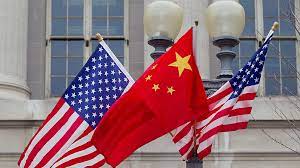China has agreed that the UN human rights chief can visit Xinjiang after the Beijing Olympics, the South China Morning Post said, citing unidentified sources, but activists and a Western diplomat expressed doubt after years of stalled talks.
Rights groups have accused China of widescale abuses against Uyghurs and other minority groups in its far western region of Xinjiang, including mass detention, torture and forced labour. The United States has accused China of genocide. Video Player is loading. Beijing denies all allegations of abuse of Uyghurs and other Turkic Muslims and has described its policies as necessary to combat religious extremism.
The newspaper said approval for the visit by Michelle Bachelet, the UN high commissioner for human rights, after the Games conclude on Feb. 20, was granted on condition that it should be “friendly” and not framed as an investigation. Beijing had asked Bachelet’s office not to publish a report on the situation in Xinjiang, the paper said on Thursday.
The office of Bachelet, who has been pursuing negotiations with China for a visit since September 2018, did not immediately respond to a request for comment. A Western diplomat cast doubt on the SCMP report, saying China and Bachelet had been discussing a visit for years but had yet to agree the terms of reference, which, on Bachelet’s side, include free and unfettered access to people of her choice.
A spokesman of China’s foreign ministry, Zhao Lijian, said Bachelet had been invited to visit Xinjiang a long time ago for the purpose of exchange and cooperation, and added that China opposed any “political manipulation” based on the visit.
With the UN Human Rights Council’s five-week session set to start on Feb 28, activists and diplomats say the diplomatic window is closing for Bachelet to publish the report, expected to be based on her office’s own research and interviews with alleged victims and witnesses in and out of Xinjiang and China. US lawmakers had urged the UN human rights office to release its assessment before the Olympics. Activists have voiced frustration for months about the delay in publishing the report. In December, Bachelet’s spokesperson told a UN briefing in Geneva that her office was finalising its assessment of the situation.
As in 2008, the Olympics have again cast a spotlight on China’s human rights record, which critics say has worsened since, leading Washington to call Beijing’s treatment of Uyghur Muslims genocide and prompting a diplomatic boycott by the United States and other countries. “No one, especially the world’s leading human rights diplomat, should be fooled by the Chinese government’s efforts to distract attention away from its crimes against humanity targeting Uyghurs and other Turkic communities,” Sophie Richardson, the China director of New York-based Human Rights Watch, told Reuters in an email on Friday.







